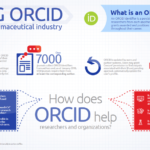Featuring an update to TranspariMED’s COVID-19 database, the Virus Outbreak Data Network in Africa, a review of research participants’ opinions on data sharing, the results from the State of Open Data 2019 annual survey, the Open Access Directory and an open letter to the Prime Minister of the UK.
UPDATE: the database of databases via TranspariMED
As reported in last week’s digest, TranspariMED’s COVID-19 clinical trials toolkit has now been updated to include resources from the newly launched COVID-evidence database, University College London’s EPPI-Centre Living Systematic Evidence Map, University of Southampton’s Clinical Informatics Research Unit COVID-19 R&D Data Dashboard, and a journal pre-proof of a systematic review by Lythgoe and Middleton. TranspariMED’s database is regularly updated as more resources become available.
Opportunities to learn from the data via Medical Xpress
For the most part, Africa has not yet experienced the steep rise in the number of COVID-19 cases seen in other regions of the world, such as China and Europe. This presents a unique opportunity to learn from the data from countries at the centre of the pandemic in order to take evidence-based preventative measures now. In response to this, the Virus Outbreak Data Network, a platform for ensuring shared data meet the FAIR principles of data stewardship, is being implemented across Africa in collaboration with Kampala International University. Training programmes on data stewardship will soon be available in Ethiopia, Kenya, Nigeria, Tanzania, Uganda and Zimbabwe.
Mozersky et al. 2020: opinions on data sharing via Wiley Online Library
In the absence of studies exploring the views of research participants with regards to qualitative data sharing, Mozersky and colleagues interviewed 30 participants from qualitative studies. Although many of these participants were involved in studies that collected sensitive and confidential information, most were in support of deidentified data sharing or had expected this was already happening. The review concludes that, in qualitative research, participants’ expectations may influence a researcher’s sense of obligation to share deidentified data.
Opinions from the State of Open Data 2019 annual survey via The Publication Plan
The results from the State of Open Data 2019 annual survey have been recently shared by Digital Science, in collaboration with Springer Nature and figshare. The report finds that the top motivating factors for researchers to share their data are improved visibility of research and the potential benefits for the public. Additionally, the majority of respondents felt that open access to primary research should be mandated by funding bodies. However, the survey also highlighted several concerns among the academic publishing community, such as the potential misuse of open data and copyright and licensing issues.
Making sense of the Open Access Directory via London School of Economics
The Open Access Directory, hosted by Simmons University, was first launched in 2008 but remains a relevant wiki-based resource for navigating the complex landscape of open access. Today, it boasts 1472 pages and counting, featuring repositories and forums frequented by researchers, librarians and journalists. Recent updates to the directory include semantic representations via Wikidata, tag libraries in relation to the crowdsourced Open Access Tracking Project and Perma.cc links.
Calls for COVID-19 testing transparency via Sense About Science
Sense About Science has published an open letter to Prime Minister Boris Johnson, calling for the UK government’s plans for COVID-19 testing to be published alongside the evidence used to shape these policies. In line with the government’s ongoing commitment to evidence transparency, these evolving policies must be made available to experts and the public alike. The letter currently has over 100 signatories from across the UK, including Baroness Judith Jolly of the House of Lords and Professor Carl Heneghan of the Centre for Evidence-Based Medicine.
We at Open Pharma would like to continue to encourage all our readers to look after themselves and their community and continue to follow advice from their country’s government and health organizations.
Coronavirus mental health and wellbeing resources:






